
Photo credit: Wikimedia.
Before we turn the page to 2017, let’s take a refresher on the most talked about events of this year.
From one startup’s spectacular failure to Alibaba’s shopping spree, here are the top tech stories in Southeast Asia in 2016:
1. Alibaba’s huge Lazada purchase
Alibaba this year bought a US$1 billion controlling stake in Rocket Internet-born Lazada, the largest online department store that’s billed as Alibaba’s and Amazon’s counterpart in Southeast Asia. The deal makes it easier for Alibaba to further expand overseas and hit its goal of getting at least half of its revenue there.
The deal couldn’t have come at a better time.
Southeast Asia holds huge potential with its rising middle class and growing smartphone usage and internet adoption. Yet the region is also a tough nut to crack so having a partner who understands and navigates it well gives Alibaba a legup.
The deal couldn’t have come at a better time: Lazada was reportedly running out of money and didn’t have much luck in its fundraising efforts beginning the previous year.
Nevertheless, experts said its acquisition was a “validation” that the region is very attractive to strategic investors, and it would trigger others to look at Southeast Asia for investments.
2. The Alibaba vs Amazon face-off
Alibaba continued its quest to conquer Southeast Asia with yet another acquisition via Lazada: online grocery provider Redmart.
Redmart was supposedly also a target of Alibaba’s US rival Amazon, which is planning to enter Southeast Asia early next year, according to a TechCrunch report. Amazon is said to be hiring staff and quietly buying assets like refrigerated trucks in the region.
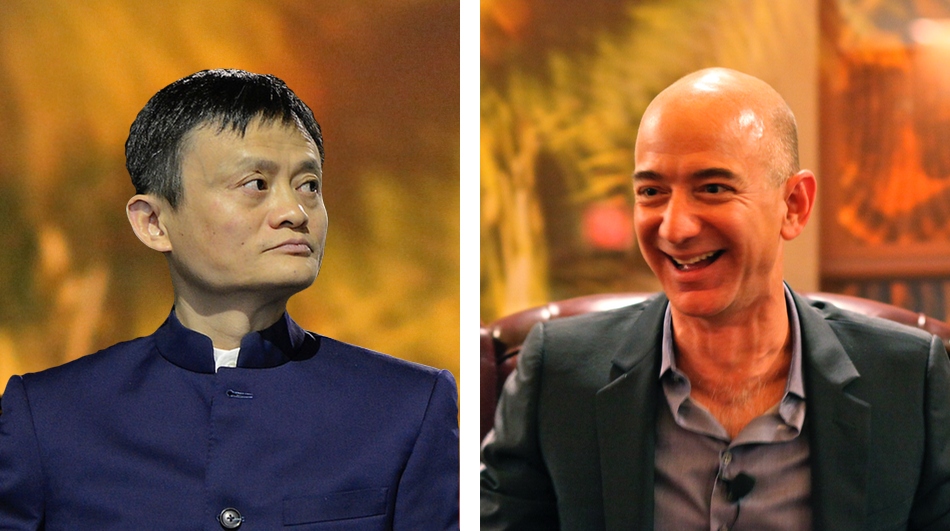
Photomontage by Tech in Asia. Photos by Steve Jurvetson and UNclimatechange.
If things push through as planned, a big face-off between the two ecommerce titans will happen soon.
3. Ensogo’s collapse
In June, Ensogo of Catcha Group announced the shutdown of all its ecommerce sites across Southeast Asia and Hong Hong, marking one of the most controversial startup failures this year.
The closure was the last blow in a tumultuous year for Ensogo, a daily deals and flash sales company that later shifted toward a marketplace model.
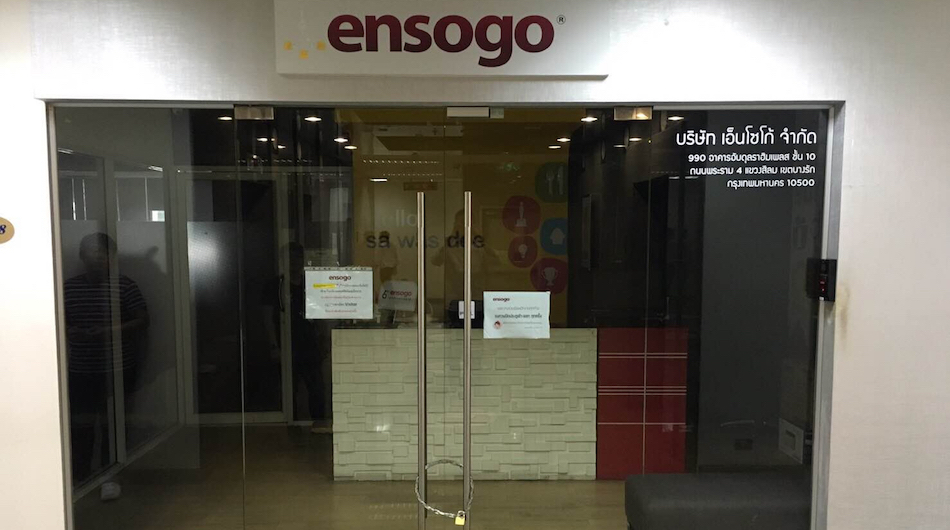
Prior to it, merchants complained they weren’t getting paid for the products sold through the site.
The company blamed this on its decision to centralize its operations in Singapore and cut its headcount by half to reduce its cash burn rate.
Various factors contributed to the collapse of Ensogo, which could no longer stem its losses.
4. Rakuten’s closure in Southeast Asia
Japanese ecommerce giant Rakuten closed down its Singapore, Malaysia, and Indonesia marketplaces in March and laid off 150 staff.
At the time, the company also announced it was selling Thai ecommerce site Tarad, which it acquired in 2009.
The company did not give a specific reason for the closures, except to say that the moves were in line with a new roadmap.
5. Grab’s series F funding
Southeast Asia’s top ride-hailing app raised in September a whopping US$750 million in funding, led by Japanese conglomerate SoftBank. The round reportedly brought its cash position to US$1 billion and valued it at over US$3 billion. That makes it the second biggest tech company in the region by valuation, falling behind Garena, which is said to be worth US$3.75 billion.
Grab’s funding came a month after its investor Didi Chuxing acquired the China unit of Grab’s staunch rival Uber. Right after that deal, Grab co-founder Anthony Tan wrote a smack-talking-slash-motivational letter to his employees, assuring them they would prevail over any foreign player.

Grab boss Antony Tan is overseeing the startup’s bloody battle against Uber. Photo credit: Grab.
6. Go-Jek’s funding
The Indonesian ride-hailing stalwart also ramped up its war against Uber and Grab with a US$550 million funding in August. The investors in this huge round included KKR, Warburg Pincus, Farallon Capital, Capital Group Private Markets, “as well as existing shareholders and other international investors.”
The ride-hailing battle just gets tougher.
Go-Jek started out with motorcycle-hailing, banding together thousands of the Indonesian capital’s bike pilots in a manner similar to Uber. The company later expanded into on-demand services like parcel couriers, food deliveries, cleaners, and massages. In April it took on Uber and Grab head-on with the launch of Go-Car.
Go-Jek’s numbers were leaked in July, and they showed a dramatic slowdown in its bookings, no thanks to a cut in its subsidies.
7. Rocket Internet losses
The German startup factory said it has lost more than US$680 million so far this year, with many of its businesses failing to attain sustainability. Specifically, its fashion ecommerce sites have been downgraded by roughly US$2 billion this year.
But Rocket Internet isn’t short on cash – it has US$1.7 billion in the bank and a further US$1.16 billion available at the portfolio startups.
8. Google’s first Southeast Asian acquisition
The tech giant bought in February Singapore-based work chat app Pie – its first in the region.
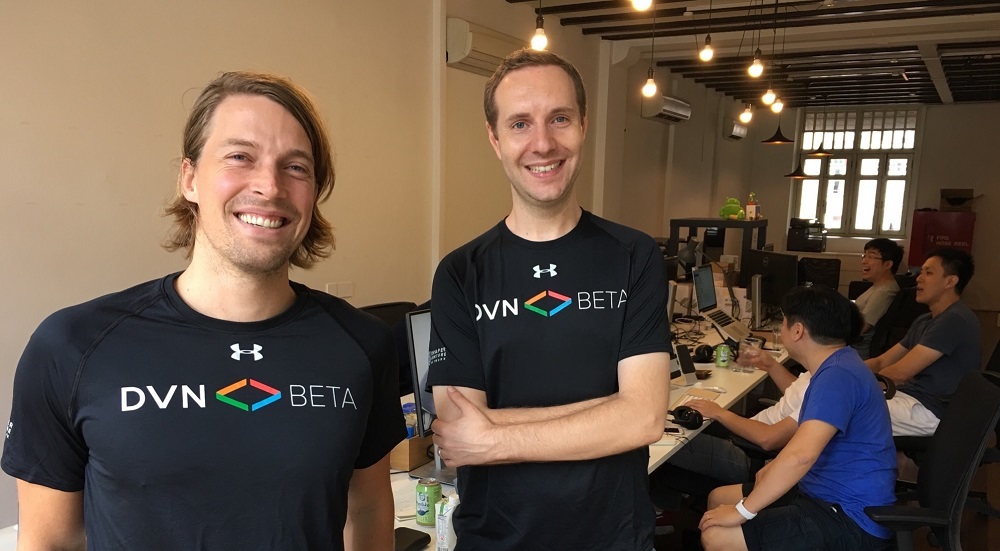
Pie founders Pieter Walraven (left) and Thijs Jacobs.
Pie’s engineers would supposedly kickstart the engineering team Google intended to build in the city-state.
9. The ugly Grabgas controversy
In August, a blog post by Grabgas’ CTO about how the founders of the cooking gas delivery startup supposedly screwed him over went viral and became the talk of town for weeks. In the post, the CTO detailed his grievances over equity, GrabGas’ alleged bloated KPIs, and the company’s lack of transparency.
The fallout from the controversy couldn’t be contained, with Malaysian telco Digi Telecommunications’ accelerator arm deciding in the end that it would no longer invest in the company. GrabGas was one of the three winning startups in its inaugural cohort, announced in a demo day in Bangkok in the same month.
10. The world’s first driverless taxis
NuTonomy’s self-driving taxis, said to be the first in the world, began picking up passengers as part of a public trial in Singapore last August.
The rides – in modified Renault Zoe and Mitsubishi i-MiEV electrics – were confined within the One North business district and passengers had to be invited to use the service. NuTonomy also tied up with Grab to give select Grab users a chance to experience riding the autonomous taxis.
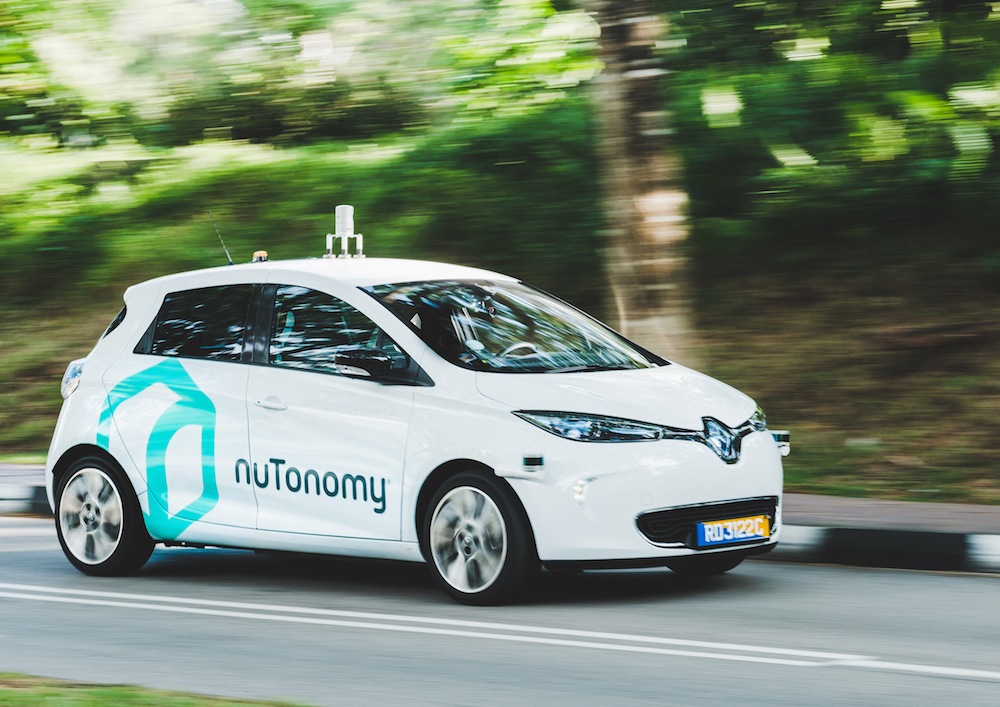
This electric, self-driving Renault is one of the cars now taking passengers in Singapore. Photo credit: NuTonomy.
Throughout the trial, the company would collect and evaluate data related to the software’s performance, the booking process, vehicle routing, and the overall passenger experience. This data would allow it to refine everything in preparation for its commercial launch in 2018.
11. The Pokemon Go craze
The mobile game from Niantic took the world by storm, rising to number one app overall around the time of its launch, according to App Annie.
In Southeast Asia, the game beat several huge international events in terms of the number of Google searches over the month that each event happened.
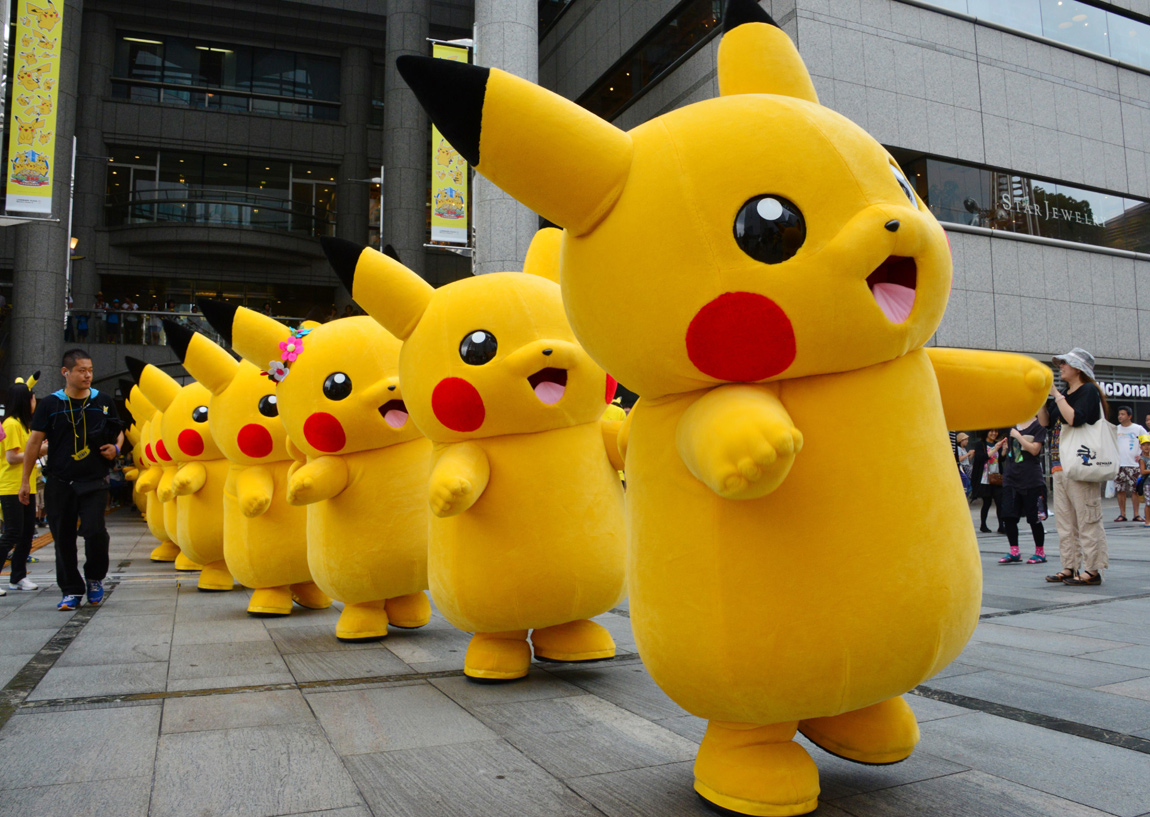
Photo credit: AP via International Business Times.
12. Netflix’s much-awaited launch
Netflix caters to the affluent market.
Netflix made a huge global push in January, launching in 130 new countries – all at once.
In Southeast Asia, the US video streaming service competes with homegrown players like Hooq and iFlix, both of which offer lower price points and a deep inventory of local content.
13. When Rocket internet sold Foodpanda
Just this weekend, Rocket Internet announced it’s selling the entire global operations of online food delivery service Foodpanda to rival firm Delivery Hero.
It said the transaction “leads to reduced complexity at the group level for Rocket Internet,” but didn’t elaborate. The deal is expected to close before the year ends.
Delivery Hero is present in 33 countries worldwide, while Foodpanda caters to diners in 22 countries and has a stronger footprint in Asia.
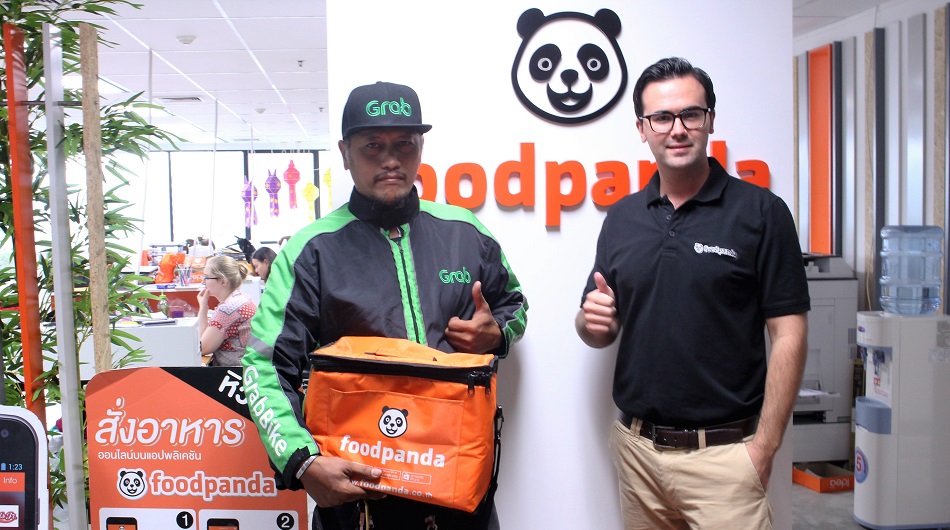
Foodpanda Thailand managing director Alexander Felder (L) and a GrabBike rider looking stoked to be delivering Foodpanda meals. Photo credit: Foodpanda.
14. Garena becomes the most valuable startup
The Singapore-based company closed a US$170 millions series D funding, led by the strategic investment fund of the Malaysian government, in March. That skyrocketed its valuation to US$3.75 billion, making it the most valuable startup in Southeast Asia.
Founded in 2009, Garena started off creating software that linked people up for multiplayer games, then ventured into game distribution. In 2010, it launched Garena+, an online platform for people to meet, chat, and play games with one another. More recently, it unveiled other offerings such as payment network AirPay and mobile-centric online marketplace Shopee.

Nick Nash, group president of Garena, at Tech in Asia Singapore 2015.
The company booked US$300 million in gross revenue in 2015, representing a compound annual revenue growth of about 90 percent over the past five years.
15. Indonesia’s and Malaysia’s battle for Jack Ma
In September, the Indonesian tech scene was abuzz with the news that Alibaba’s founder Jack Ma had accepted an offer to serve as an advisor to the Indonesian government in the development of the country’s ecommerce industry.
The government was said to be setting up a steering committee consisting of 10 ministers for which it asked Ma to be an advisor.
However, to everyone’s surprise in November, Indonesian communications and information minister Rudiantara revealed that Ma would be giving his insights to neighbor Malaysia instead. “We made a lot of fuss about it but eventually we lost and Malaysia got to him first. There’s already a picture of Jack Ma shaking hands with the Malaysian prime minister.”
This post 15 biggest tech stories in Southeast Asia in 2016 appeared first on Tech in Asia.
from Tech in Asia https://www.techinasia.com/biggest-tech-stories-southeast-asia-2016
via IFTTT

No comments:
Post a Comment